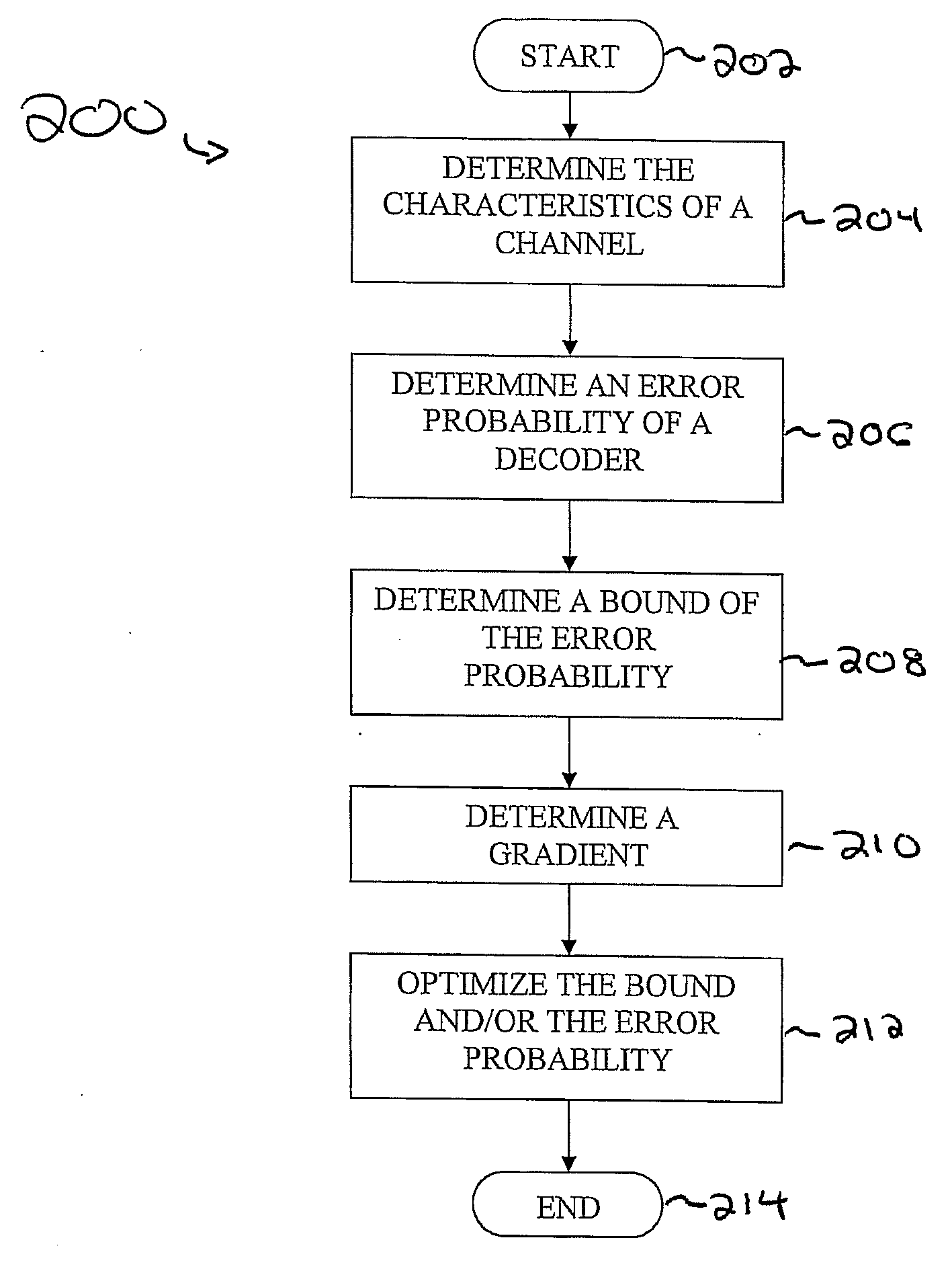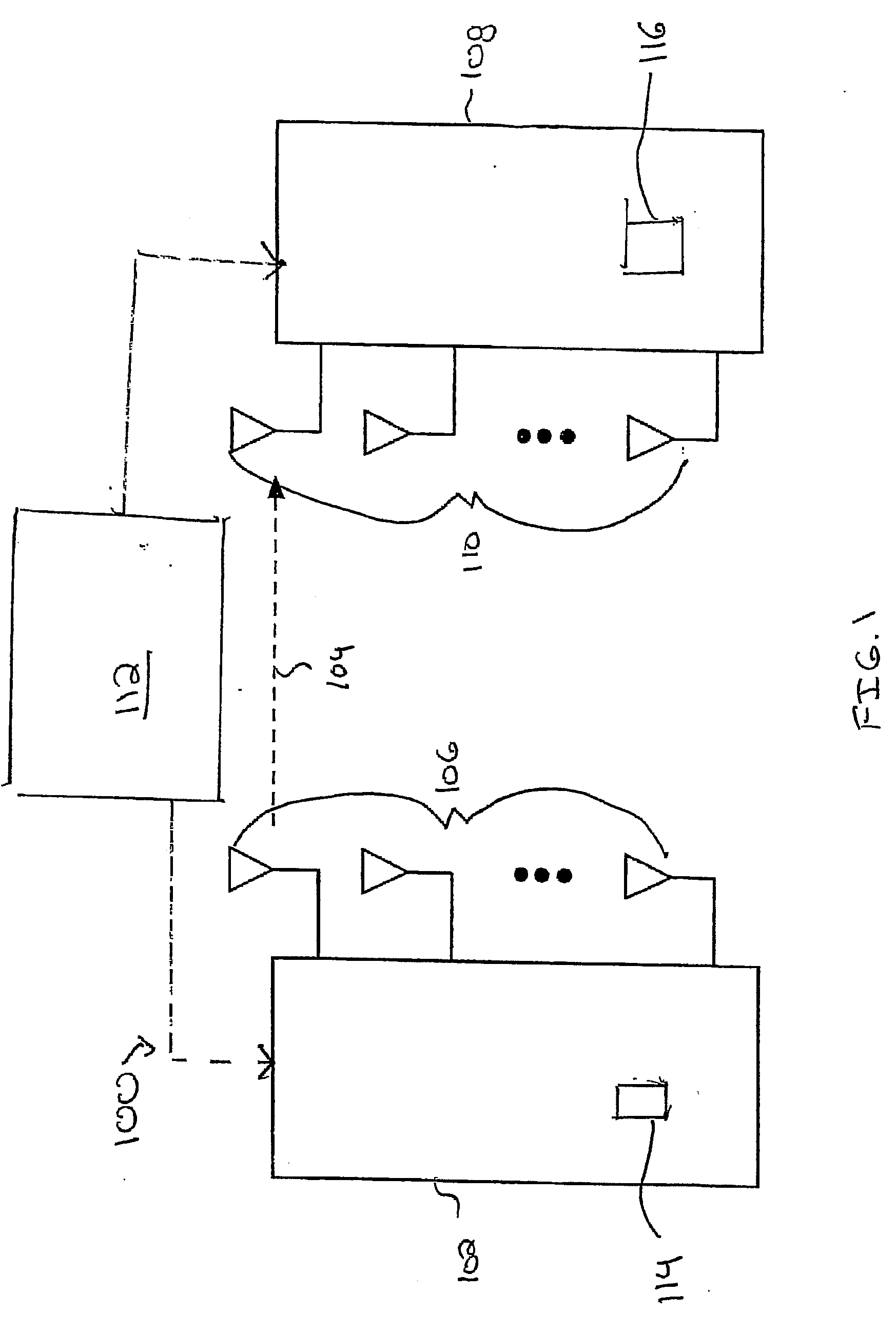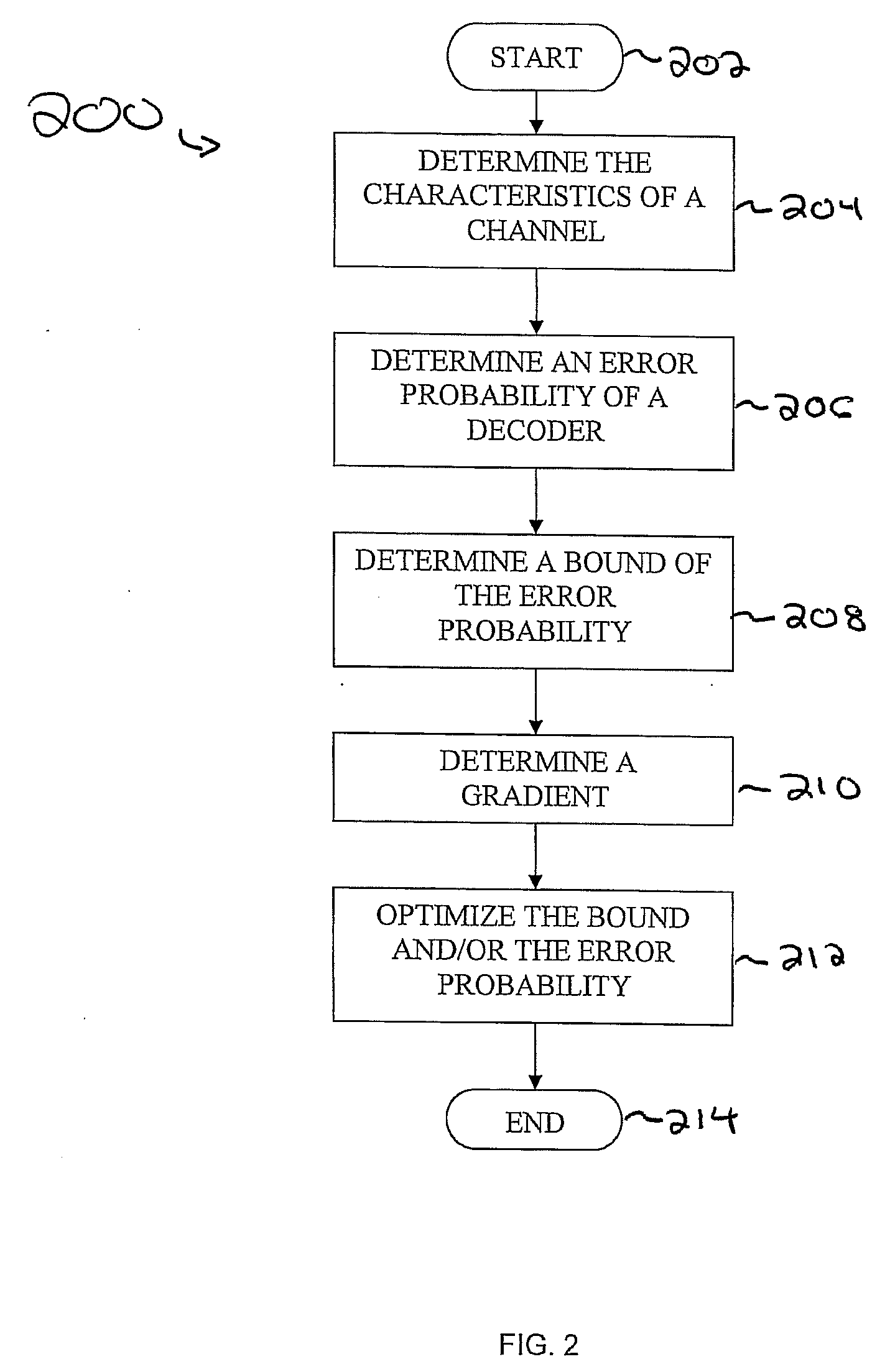Design of Spherical Lattice Codes for Lattice and Lattice-Reduction-Aided Decoders
a technology of lattice decoding and lattice reduction, applied in the field of data transmission, can solve the problems of no systematic design procedure previously proposed, and the complexity of ml decoding can significantly increase for lattice codes, and achieve the effect of reducing the average transmit energy constrain
- Summary
- Abstract
- Description
- Claims
- Application Information
AI Technical Summary
Benefits of technology
Problems solved by technology
Method used
Image
Examples
Embodiment Construction
[0016]The present invention generally provides methods and apparatus for designing optimal lattice codes. More specifically, lattice codes with minimum error rates when lattice decoders and lattice-reduction-aided (LRA) decoders are employed at the receiver are designed. This is achieved by employing stochastic optimization techniques. The new design methodology may be tailored to obtain optimal lattice (e.g., space-time) codes for any fading statistics and / or any signal-to-noise ratio (SNR) of interest.
[0017]One of the main problems in designing optimal lattice codes is that obtaining closed-form objective functions needed for deterministic optimization or other analytical techniques seems intractable, even for the simple i.i.d Rayleigh fading model. To compensate for this problem, in one embodiment, stochastic optimization based on the gradient estimation is used. These techniques may be used to obtain optimal lattice codes for arbitrary fading statistics and / or SNRs of interest. ...
PUM
 Login to View More
Login to View More Abstract
Description
Claims
Application Information
 Login to View More
Login to View More - R&D
- Intellectual Property
- Life Sciences
- Materials
- Tech Scout
- Unparalleled Data Quality
- Higher Quality Content
- 60% Fewer Hallucinations
Browse by: Latest US Patents, China's latest patents, Technical Efficacy Thesaurus, Application Domain, Technology Topic, Popular Technical Reports.
© 2025 PatSnap. All rights reserved.Legal|Privacy policy|Modern Slavery Act Transparency Statement|Sitemap|About US| Contact US: help@patsnap.com



